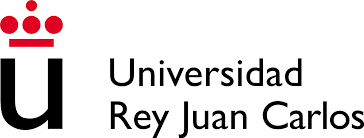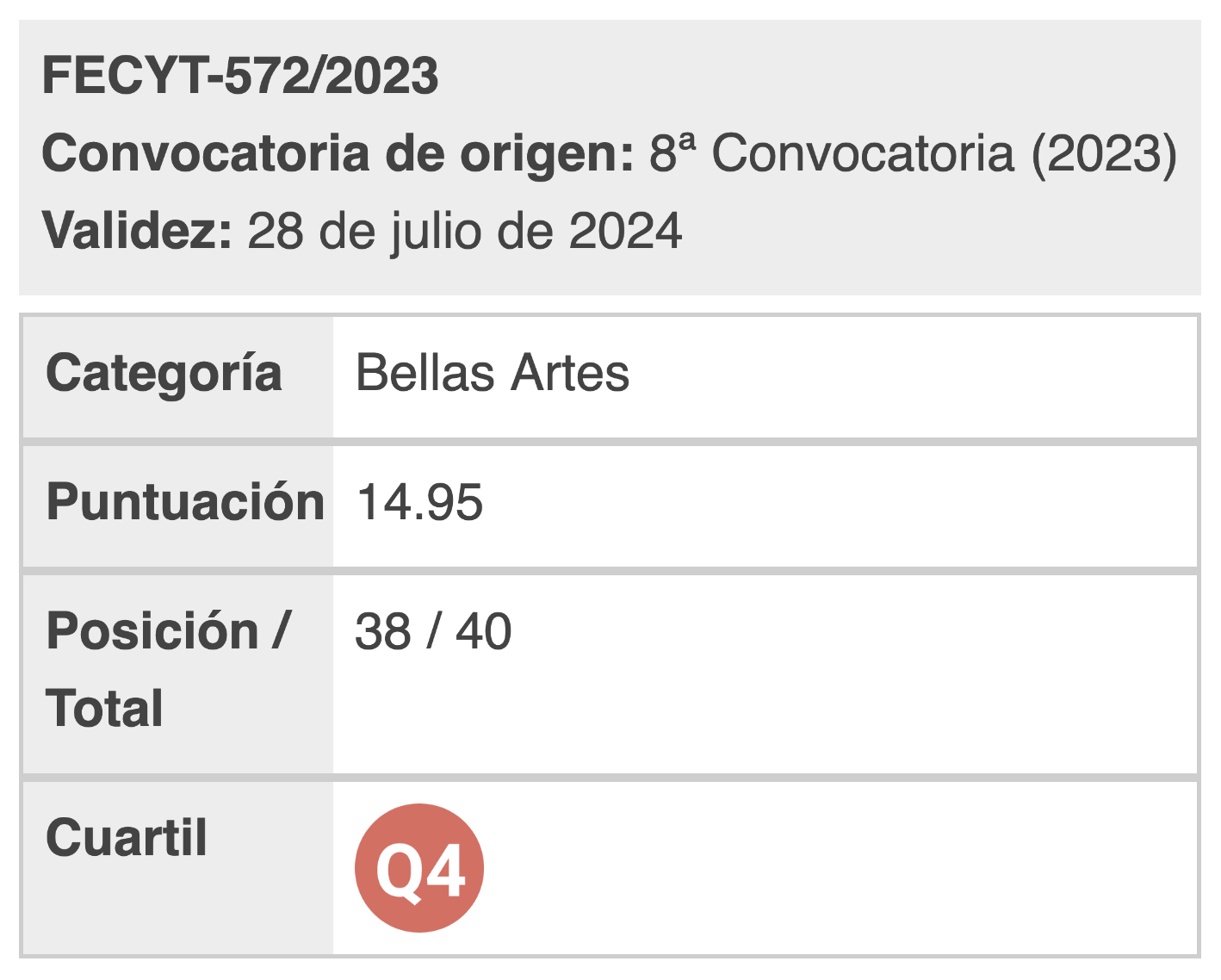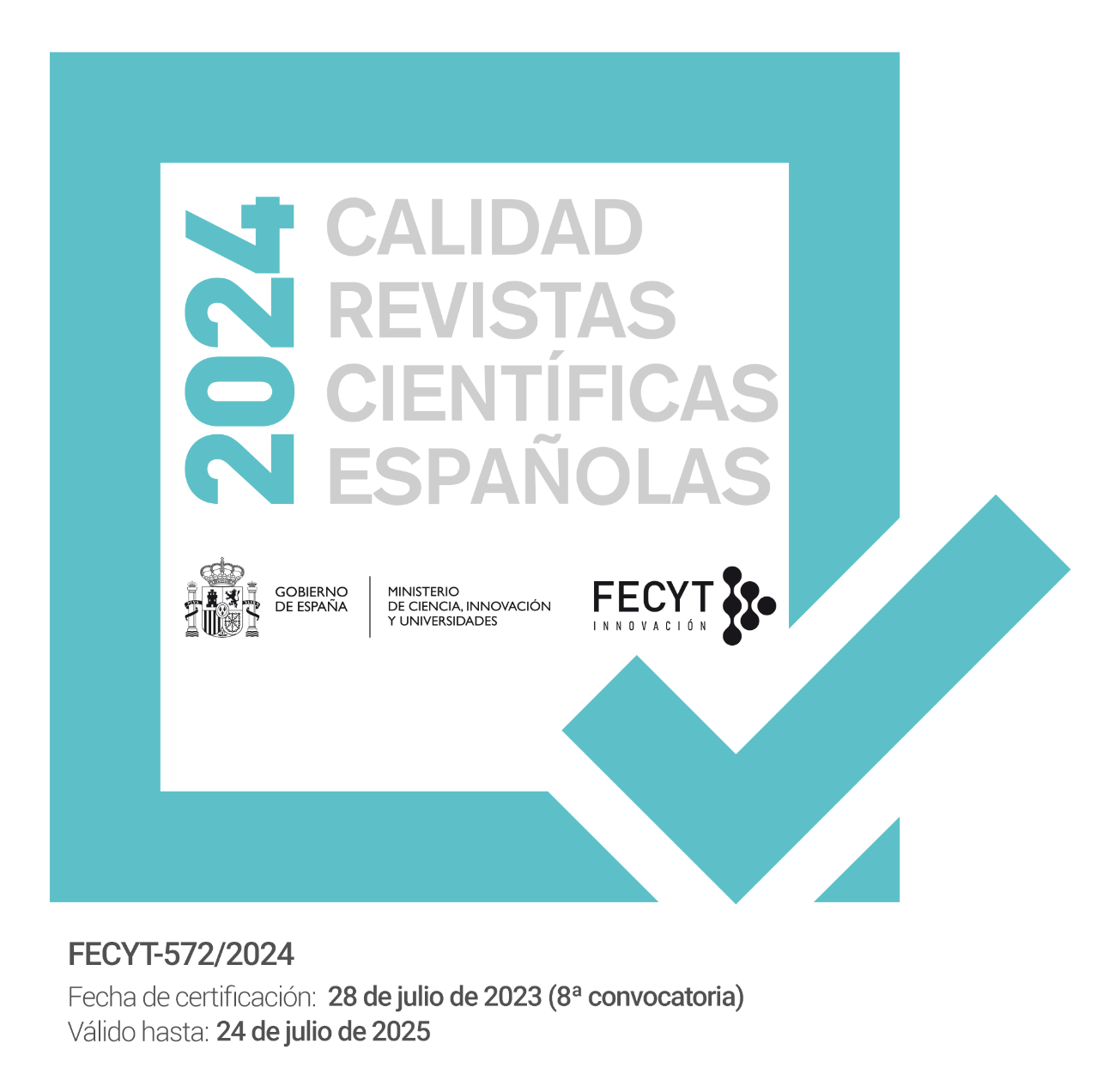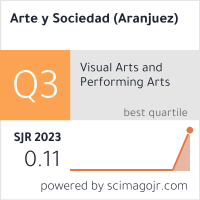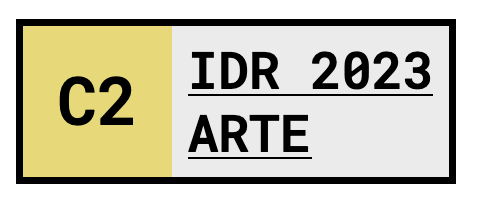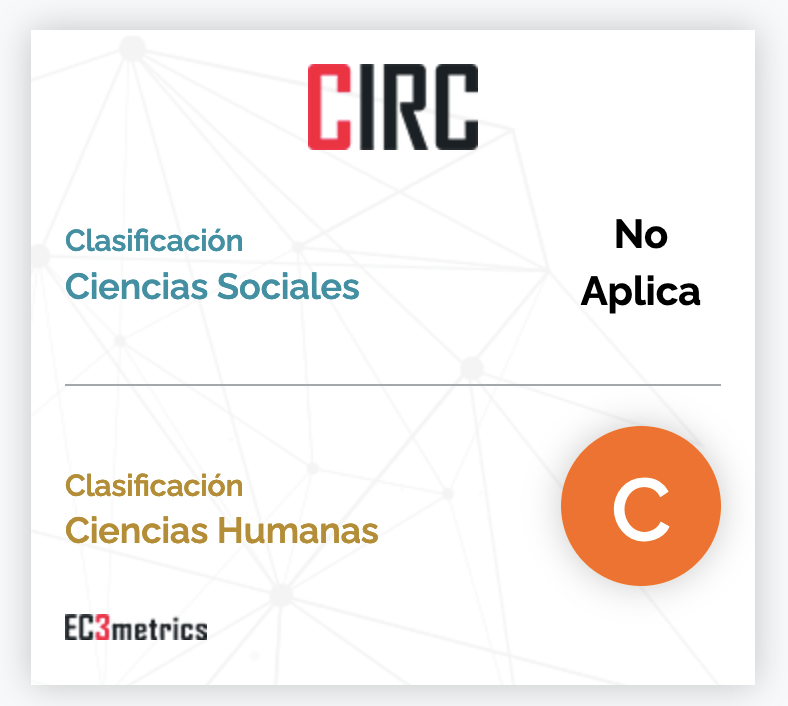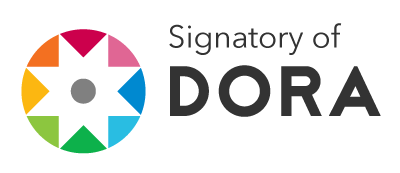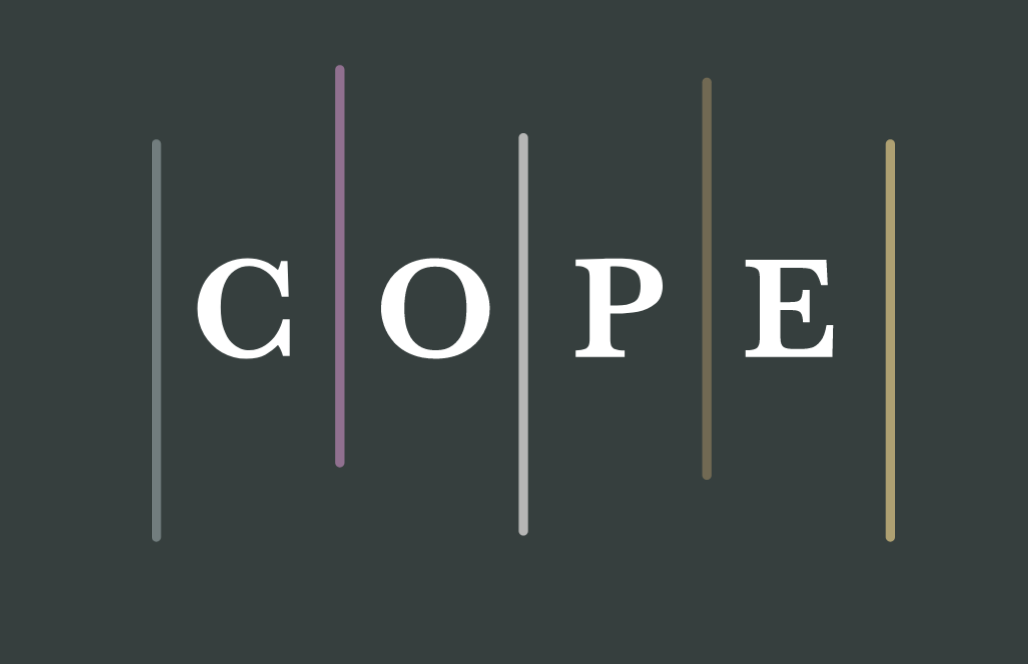ISSN: 2174-7563
Ethical Code, Publication and Misconduct Policy, and Use of Artificial Intelligence
ASRI. Journal of Research in Art and Humanities is limited to the code of ethics based on the COPE declaration of good practices declaration of good practices developed in 2017. All parties involved in the publication agree and declare themselves willing to collaborate with the ethical principles of this declaration.
1. Duties of the Director/Editor/editorial team
The Editorial Committee of the ASRI magazine. Journal of Research in Art and Humanities is a working group made up of twenty-two national teachers and researchers who have recognized research experience, competitive research projects and publications in indexed journals, in the last 5 years. Its composition will be reviewed every 2 years.
The director/deputy director and editor of the magazines have the following functions.
- Appoint the members of the drafting committee. Appoint editorial coordinators for monographic issues.
- Decide the final publication of the articles, after passing the evaluation by blind peers, especially if there is any conflict
- Decide the standards of acceptance and publication of research papers.
- Select the blind peer reviewers together with the coordinators of the monographs
1.1. Decision to publish or reject an article
ASRI's editor and editor are solely responsible for deciding whether or not an article should be published. This decision will be the result of studying the opinions offered by the blind evaluators, consulting the journal's editorial team, and defending the editorial policy with the sole purpose of achieving the highest levels of scientific quality. The director and editor of ASRI will be solely responsible for dealing with possible crimes in the form of cases of abuse, plagiarism and violation of copyright. All members of the editorial team undertake not to make use, without the express authorization of the authors, of the information sent to the journal for publication. If there is any complaint by any of the authors, the director and the publisher will take whatever measures are necessary to clarify what happened and to be able to offer the authors a response that is as clear as possible.
1.2. Editorial team confidentiality
Due to the foregoing, the components of the editorial team undertake to treat any submission to the ASRI journal with the utmost confidentiality throughout the editorial process. Only the editor, the editorial coordinator or the director/Chief director can contact the authors and issue an opinion on the submission.
2. Duties of reviewers
2.1.Help with editorial decisions
Both the members of the scientific committee and the external reviewers will help the director and the editor of ASRI to make the best decision when publishing or rejecting an article.
2.2. Reviewer confidentiality
Any article submitted to ASRI must be treated with the utmost confidentiality, with the reviewers and section editors being solely responsible for issuing an opinion on the submission.
3. Duties of the authors
The works sent to the ASRI journal must comply with the editorial standards published on its website. The data provided must offer the greatest rigor so that others can be allowed to properly cite the work without fear of making mistakes. It is unethical and highly reprehensible to attempt to publish deliberately inaccurate data.
4. Original and plagiarism
Authors must meet the following requirements:
- The article submitted to ASRI must be original.
- The article has not been published in any other editorial.
- Data taken from other authors included in the article must be cited and referenced according to the rules specified in the "rules for authors".
ASRI Journal is committed to using anti-plagiarism tools to ensure that the works received are original and have not been copied from other sources. It also undertakes to use tools that help detect work done using Artificial Intelligence, although as of today there are no tools available that ensure a complete review of the article.
Any component of the editorial team of the ASRI Magazine. Art and Society. Research Journal in Digital Arts and Humanities (directors, section editors, editorial board, members of the scientific advisory committee and reviewers) agree to withdraw in case of conflict of interest with an article. This incompatibility can occur for the following reasons:
- An editor or reviewer is part of the work that is sent to be evaluate.
- An editor or reviewer has a financial interest in the work being sent for review.
- An editor or reviewer is familiar or maintains a personal relationship with the person submitting a paper for evaluation.
- An editor or reviewer is familiar or maintains a professional relationship with the person who sends a paper to be evaluated.
The journal has an ethics committee in case its intervention is necessary
6. Use of Artificial Intelligence
ASRI acknowledges the growing use of Artificial Intelligence (AI) tools in research writing, analysis, and review processes. Accordingly, the journal establishes the following ethical guidelines for their use:
-
Transparency: Authors must clearly disclose whether any AI tools (such as writing assistants, image generators, data analysis software, etc.) were used during the preparation of the manuscript. This information should be included in the acknowledgments section or in a footnote at the beginning of the article.
-
Responsibility: Full responsibility for the scientific, ethical, and legal content of the article lies solely with the authors, regardless of the use of automated tools. AI systems cannot be credited as co-authors under any circumstances.
-
Permitted Use: The use of AI is permitted for auxiliary tasks (such as language refinement or initial text structuring), but not for generating original ideas, interpreting results, writing full sections, or formulating hypotheses.
-
Scientific Integrity: Improper use of AI—such as automated plagiarism, fabrication of sources, or manipulation of data through automated systems—will be considered misconduct and addressed according to the journal’s academic integrity policies.

